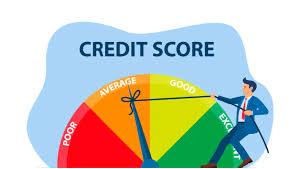Improving your credit score requires consistent effort and a good understanding of how your credit is evaluated. Here are several steps you can take to boost your credit score:
1. Pay Your Bills on Time
- Payment history makes up the largest portion of your credit score (35%).
- Ensure that all of your bills, including credit cards, loans, utilities, and even rent, are paid on time.
- Set up automatic payments or reminders if needed to avoid missing due dates.
2. Reduce Credit Card Balances
- Credit utilization ratio (the amount of credit you’re using compared to your total credit limit) accounts for 30% of your score.
- Aim to keep your credit utilization below 30%. For example, if you have a $5,000 limit on a credit card, try to keep your balance under $1,500.
- Paying down existing debt can immediately improve your credit score.
3. Avoid Opening Too Many New Accounts
- Hard inquiries (when a lender checks your credit report to make a lending decision) can temporarily lower your score.
- Opening many new accounts in a short period can also hurt your credit score, as it indicates potential financial instability.
- Only apply for credit when necessary.
4. Keep Old Accounts Open
- The length of your credit history makes up 15% of your score.
- Keeping older accounts open (even if not used frequently) can help improve your score, as it increases the average age of your credit accounts.
5. Diversify Your Credit Mix
- Credit mix accounts for 10% of your score. Lenders like to see that you can handle different types of credit (e.g., credit cards, installment loans, mortgage).
- If you only have one type of credit, consider diversifying with a different type of credit, but do so carefully to avoid overextending yourself.
6. Dispute Any Errors on Your Credit Report
- Sometimes credit reports contain mistakes or outdated information. Check your credit reports for any inaccuracies and dispute them if necessary.
- You’re entitled to one free credit report per year from each of the three major credit bureaus (Equifax, Experian, and TransUnion) at AnnualCreditReport.com.
7. Consider a Secured Credit Card
- If you have no credit history or poor credit, a secured credit card can be a good option.
- This type of card requires a cash deposit as collateral, but it can help you build or rebuild credit when used responsibly.
8. Become an Authorized User
- If you have a family member or friend with good credit, ask if you can be added as an authorized user on their credit card. This can help improve your credit score without having to open a new account.
- Make sure the account has a good payment history and low credit utilization.
9. Settle Any Outstanding Debts
- If you have any outstanding collections or overdue accounts, try to settle them or set up payment arrangements.
- While a settled account may still show on your credit report, it will be marked as "paid," which can be better than leaving it open.
10. Use a Credit Builder Loan
- Some banks and credit unions offer credit builder loans, which are designed specifically to help you improve your credit score.
- You borrow a small amount of money that you repay over time, and the lender reports your payments to the credit bureaus.
11. Be Patient
- Improving your credit score doesn’t happen overnight. It can take several months to see significant improvements, especially if you’ve been making changes to your financial habits.
Tag Clouds
✖


